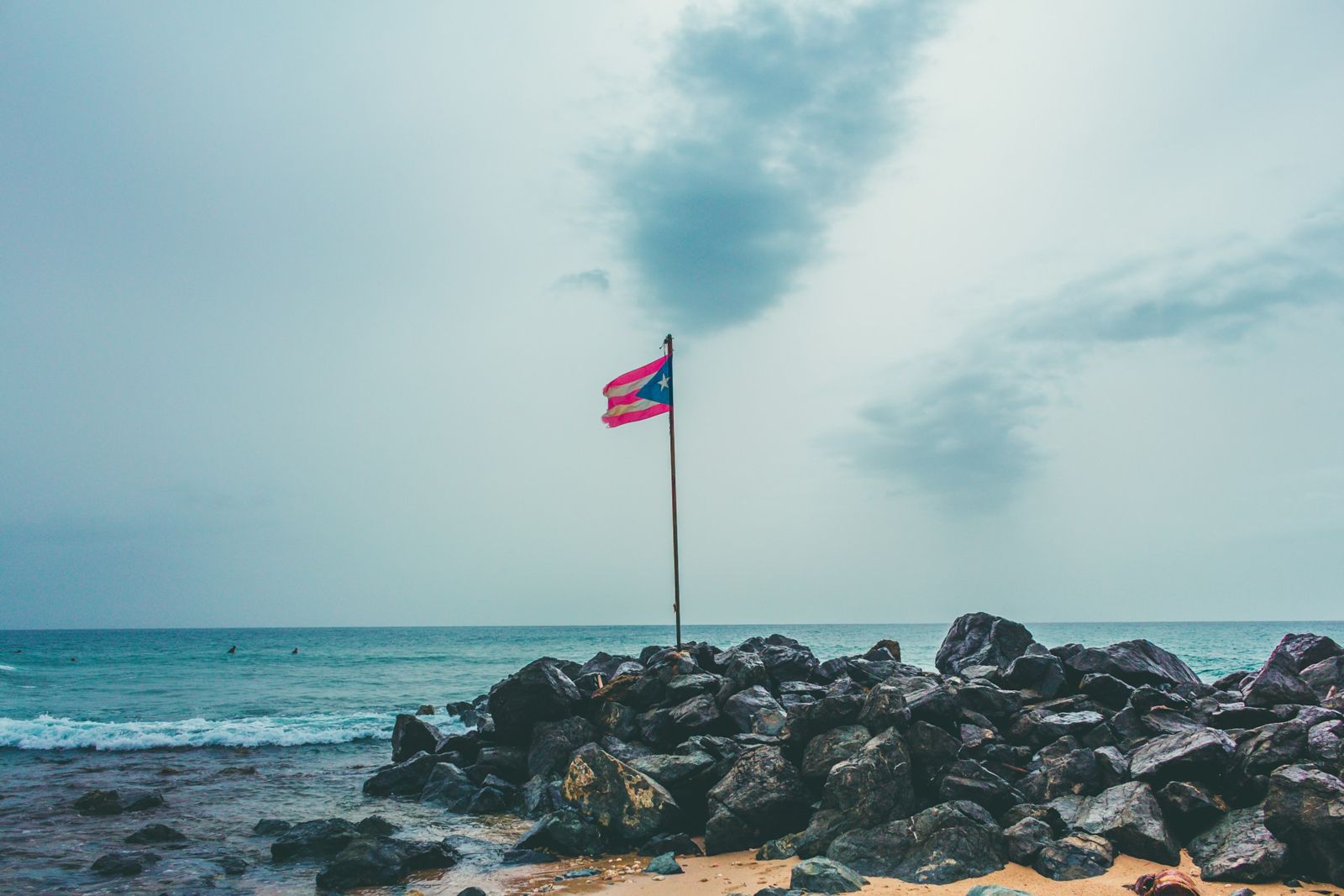Dual crises in climate and human rights
In the past decade, the toll of climate change in Puerto Rico has become impossible to ignore. In 2017, Hurricanes Maria and Irma left a trail of devastation across the island, and the ensuing humanitarian and political crisis further highlighted the territory’s particular vulnerabilities. In 2021, the Global Climate Risk Index found that Puerto Rico ranked higher than any other nation for weather-related loss events during the period stretching from 2000 to 2019. Since then, Puerto Rico has continued to face major climate disasters, including an extreme heat wave in 2023 that forced classrooms to shutter and exposed the island’s elderly population to increasing health risks. While many of the climate risks Puerto Rico is exposed to are related to its geographical status as a small Caribbean island, these dangers are exacerbated by its unusual political situation. As an unincorporated territory in free association with the United States, Puerto Rico lacks any meaningful self-determination and essentially operates as a modern colony, allowing the United States to serve its own interests by undercutting efforts to improve the lives of the Puerto Rican people.
Beyond the specific case of Puerto Rico, the right to self-determination has a long history within the international legal and political order. As part of a broader decolonization movement that began after World War II, this doctrine has become crucial to the broader realization of human rights. Self-determination is a core principle of international law, arising from customary international law; it is also enshrined in the United Nations Charter, core human rights treaties, and the decisions of UN bodies. Moreover, the International Court of Justice has ruled that similar contraventions of the right to self-determination violate international law. The right to freely determine their own political status and pursue their economic, social, and cultural development has been reaffirmed as an “inalienable right of the people of Puerto Rico.” Nevertheless, the United States has repeatedly violated this right in the realm of environmental, climate, and energy policy, which has undermined the island’s resilience to climate change.
Puerto Rico’s energy dependence suffers from its colonial status
The US Federal Emergency Management Agency’s plan to repair Puerto Rico’s electrical grid put the human rights implications of self-determination on clear display. Long seen as a symbol of the island’s infrastructural and political turmoil, Puerto Rico’s power grid became a significant point of controversy following the island’s monthslong blackout following Hurricane Maria. In 2020, FEMA announced a $9.6 billion project to rebuild Puerto Rico’s existing electric grid, which operates 99% on fossil fuels that must be imported via costly Jones Act-compliant tankers, further entrenching the island’s carbon dependence.
This directive from the US federal government, which the people of Puerto Rico have no part in electing, stands in direct opposition to laws passed by local legislators, which commit to reducing greenhouse gas emissions and transitioning the island’s power grid towards 100% renewable sources by 2050. By doubling down on the existing fossil fuel–dependent power grid, FEMA not only infringed upon the electoral wishes of Puerto Ricans for a complete transition to renewable energy, but it also ignored extensive studies showing the feasibility of this plan. As local community organizations argue in their legal challenge to FEMA’s action, this fossil fuel entrenchment functionally denies the Puerto Rican people the right to make decisions about their energy development, in turn impacting their human rights to health and a healthy environment.
Puerto Rico is denied participation in international climate financing
The violation of Puerto Ricans’ right to self-determination goes beyond climate laws and policies that operate at a local level. The right to self-determination is also interpreted as the collective right of a people to participate in the international community, including various fora of international negotiation and lawmaking. As a colonial territory, Puerto Rico receives no representation at the United Nations, nor is it included on the UN’s list of Non-Self-Governing Territories. Therefore, it cannot vote in the General Assembly or formally advocate for itself in crucial conversations on international environmental law. Not only does Puerto Rico miss critical opportunities to contribute its unique perspective as a small island suffering the outsized impacts of climate change that it did not create, but it also loses the ability to pursue its own specific interests in the broader realm of international law and policymaking.
The Conference of the Parties mechanism under the United Nations Framework Convention on Climate Change shows how Puerto Rico is prevented from benefiting from international climate change negotiations. As a colony of the United States, Puerto Rico is ineligible to receive international climate financing. While other similar small island developing states receive unique attention in such financing agreements, Puerto Rico is overlooked by international mechanisms specifically designed to address the plight of such geographies. Once again, Puerto Rico’s interests are directly in conflict with and superseded by those of its colonial power, the United States.
That is not to say that Puerto Ricans have not benefited from their free association with the United States. In particular, Puerto Ricans are granted US citizenship, and US-led industrialization has made the island among the wealthiest in the Caribbean region. However, in the climate and energy context, Puerto Rico’s political status hamstrings its climate resilience. It remains to be seen whether more local initiatives, such as the growing movement around coalitions of cities committed to addressing climate change, will significantly impact the bargaining position of Puerto Rican municipalities. Regardless, for Puerto Rico to respond to the climate emergency in a unified, timely, effective, and environmentally just way, its fundamental right to self-determination must be respected.

